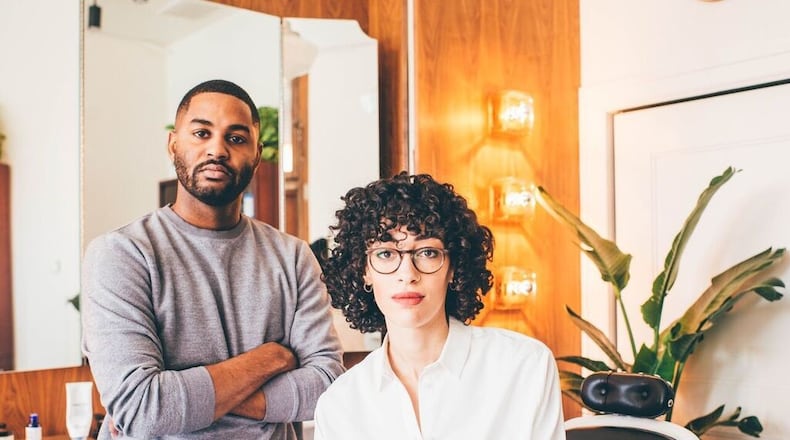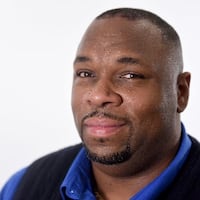Behind closed doors on Friday, several players set to face off in football’s biggest game will gather for an invitation-only conversation on issues affecting their community, from entrepreneurship to politics, and life after football.
The session is part of a Shop Talk forum started several years ago by entrepreneurs Sebastian and Gabrielle Jackson, owners of The Social Club Grooming Co., a chain of Detroit barbershops. Barbershops historically have been meeting spaces where men would engage and share ideas. The evolution was a no-brainer, Sebastian Jackson said.
“People wanted access to information that was easy to digest,” said the 32-year-old, who also works as a barber at one of the Social Club shops. “We could break barriers by curating who would be in those chairs. Because the fanbase of whoever was going to be in that chair is going to follow that person to Shop Talk.”
Friday’s conversation is expected to be led by former Green Bay Packers wide receiver Greg Jennings, and include Troy Vincent, the NFL’s executive vice president of football operations, as well as two players.
“The barbershop has proven to be a place where men of all ages and ethnicities can share dialogue openly and freely on topics that are not always comfortable to speak on in most social settings,” Jennings said.
Jackson said recently that he intended to touch on several topics — including social justice, which has been a hot topic in recent years. The NFL has been hit by declines in overall viewership and advertising revenue since 2016, when fans began boycotting after former player Colin Kaepernick famously took a knee during the national anthem. He was protesting police violence and other forms of systematic oppression against people of color. Some fans protested in solidarity with Kaepernick, who many feel lost a chance to play in the NFL because of his activism. Others boycotted because they were opposed to his kneeling, saying it signified an anti-police stance and disgraced the flag.
The Shop Talk forums began organically in 2012 at The Social Club’s flagship location just outside of downtown Detroit, near Wayne State University.
Jackson wanted a shop that did more than cut hair. He sought to legitimize his experience in a barbershop to stack up against his wife, an engineer by profession.
“If I’m going to throw that out and be a barber, I’ve got to do it in a way when I go home I feel comfortable,” he said. “For me, that insecurity, it was something like I was looking at it like I was just hustling. I didn’t fully appreciate the role a barber played in the community. I thought I was selling myself short by being a barber.”
Jackson said clients ranged from college professors to professional athletes and music artists.
“We would have really interesting people come in … and we would be having these really really deep conversations,” he said. “And it turned into an actual social club. It became less of a place (and more of) a group of people. We would exchange ideas with each other. The thing that kinda set it apart was the access we gained from these influencers.”
The forums have led to different opportunities across the country, including speaking at Harvard Business School. A chance meeting with Arthur McAfee, a senior vice president for NFL player engagement, led to this week’s event.
On a recent Saturday, a half dozen men — from teens to late 30s — crowded around the two barber chairs at one of the Social Club’s downtown Detroit locations, talking about anything from women making more than their husbands to the recent docuseries on R. Kelly. Par for the course, Sebastian Jackson said.
“I look at the barbershop kind of like church,” he said. “Where two or more are gathered. …”
About the Author





